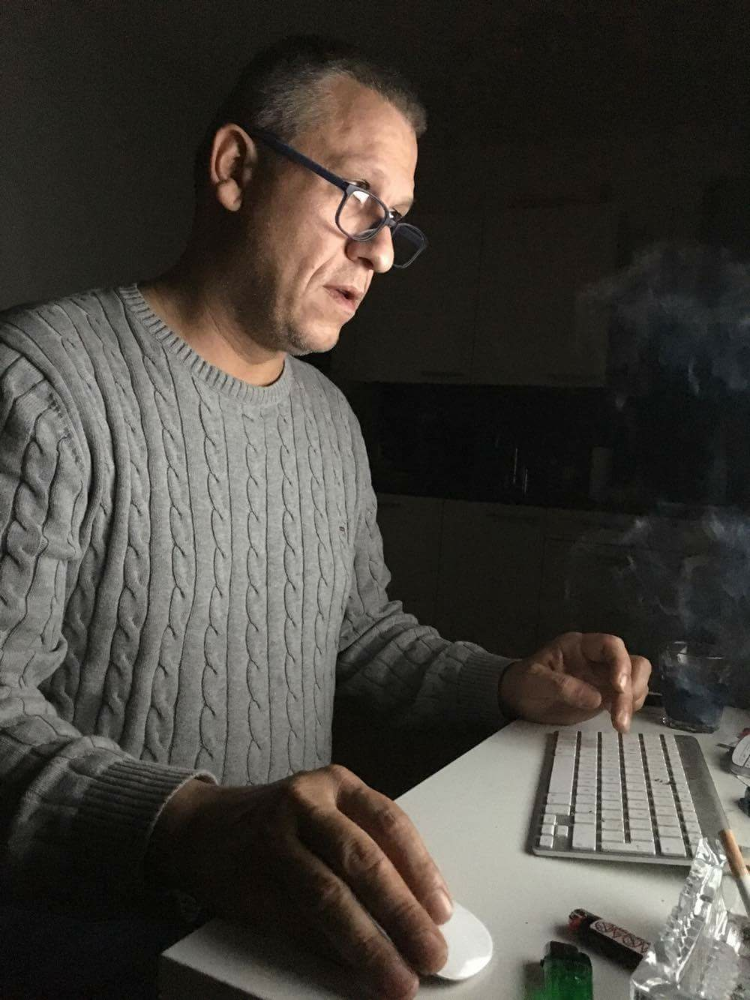
b: 1977
Summary
Name:
Ridouan TaghiYears Active:
1992 - 2019Birth:
December 20, 1977Status:
ImprisonedClass:
MurdererVictims:
10Method:
ShootingNationality:
Netherlands / Morocco
b: 1977
Summary: Murderer
Name:
Ridouan TaghiStatus:
ImprisonedVictims:
10Method:
ShootingNationality:
Netherlands / MoroccoBirth:
December 20, 1977Years Active:
1992 - 2019Date Convicted:
February 27, 2024bio
Ridouan Taghi was born on December 20, 1977, in northern Morocco. At the age of three, in 1980, he immigrated to the Netherlands with his parents and siblings, settling in Vianen. His large family eventually included eight siblings — four brothers and four sisters. He dropped out of VWO-level high school in Nieuwegein at age 17. During his youth, he joined a local gang known as the “Bad Boys,” active around Utrecht. By 1992, at just 15 years old, he had his first criminal conviction for burglary and illegal weapon possession.
Despite his early brushes with the law, Taghi flew under the radar of Dutch police for years. In his 20s, he briefly operated a grill restaurant in Utrecht and officially deregistered from the Dutch population records in 2009, possibly to go underground. By the early 2010s, he had become an elusive but powerful figure in the European cocaine trade, rising through the ranks to lead what authorities believe is one of the largest and most violent drug syndicates in the world. Known for keeping an extremely low profile, Taghi used multiple false identities and forged documents, and remained virtually invisible online.
Authorities describe him as highly intelligent, calculating, and paranoid — often surrounding himself with layers of loyal intermediaries to keep law enforcement at bay. Until his arrest in late 2019, he was the most wanted man in the Netherlands, with a record €100,000 bounty placed on his head.
murder story
Ridouan Taghi’s name became synonymous with organized crime in the Netherlands, particularly after his alleged orchestration of a series of brutal, targeted assassinations linked to the cocaine trade and internal gang disputes. According to Dutch prosecutors, Taghi operated with impunity for years, often eliminating rivals, suspected informants, or anyone perceived as a threat to his organization.
His known murder timeline began in 2013 when he was linked by Spanish police to the assassination of Mohammed Abdellaoui. In 2014, an attempted hit on criminal Samir Jabli in Amersfoort went wrong — a student was killed instead. Jabli was eventually murdered in December of the same year. Evidence later showed that bullets recovered at the scene contained Taghi’s DNA.
In 2015, Ronald Bakker, an employee of a spy shop who had reportedly cooperated with the police, was gunned down outside his home. The same year, Taghi’s name surfaced in law enforcement databases through intelligence reports and statements by former associates. One of those, Ebrahim Buzhu, who cooperated with police in 2015, was found dead in Spain in 2022.
Throughout 2016 and 2017, Taghi allegedly orchestrated a deadly string of executions: Abderrahim Belhadj for stealing cocaine; Samir Erraghib and Ranko Scekic for being informants; crime blogger Martin Kok for publishing names of his men; and Hakim Changachi, who was mistakenly killed instead of the intended target, Khalid H.

Prosecutors believe Taghi also ordered hits via the Caloh Wagoh motorcycle gang, including the killings of Justin Jap Tjong, Farid Souhali, and Jaïr Wessels. In a 2017 botched hit in Marrakesh, a judge’s son was mistakenly killed — two shooters and Taghi’s own brother were convicted for that assassination.
In retaliation for a key crown witness — Nabil B. — several relatives and associates were targeted. Nabil's brother Reduan B. was murdered just days after the witness cooperation was made public in 2018. Although Taghi was never charged in that killing, it was widely believed to be a message. In 2019, Nabil B.’s lawyer, Derk Wiersum, was gunned down in front of his home. In 2021, journalist Peter R. de Vries, who was advising Nabil B., was also assassinated in Amsterdam. Taghi denied involvement in both murders, but evidence suggests the suspects involved had ties to his network.
Taghi was finally arrested in Dubai on December 16, 2019, using a fake identity. Since the Netherlands had no extradition treaty with the UAE, he was deported three days later under persona non grata status. He was flown to the Netherlands under heavy security and held at Nieuw Vosseveld (EBI), a high-security prison in Vught.
While detained, investigations revealed that Taghi had managed to continue operating his network by passing messages through bribed guards and even his own lawyer — his nephew, Youssef Taghi. Wiretaps and surveillance exposed conversations about drug trafficking, prison escape plans, and revenge plots. Youssef was arrested in 2021 and convicted in 2023. Another of Taghi's lawyers, Inez Weski, was also arrested in April 2023 for suspected involvement.
Despite being in solitary confinement, Taghi managed to maintain influence through smuggled communications and encrypted message platforms. On February 27, 2024, he was officially convicted and sentenced to life imprisonment in the Marengo trial, one of the largest and most high-profile criminal trials in Dutch history.